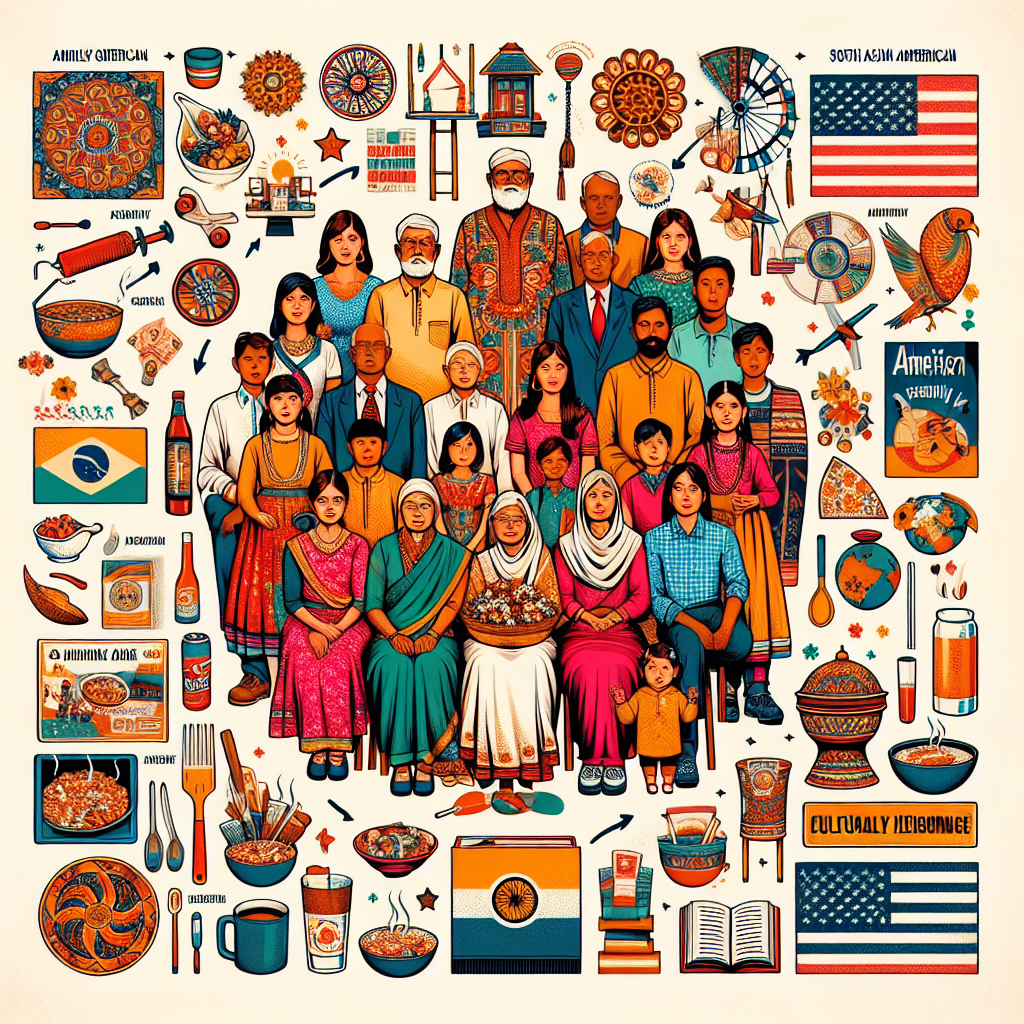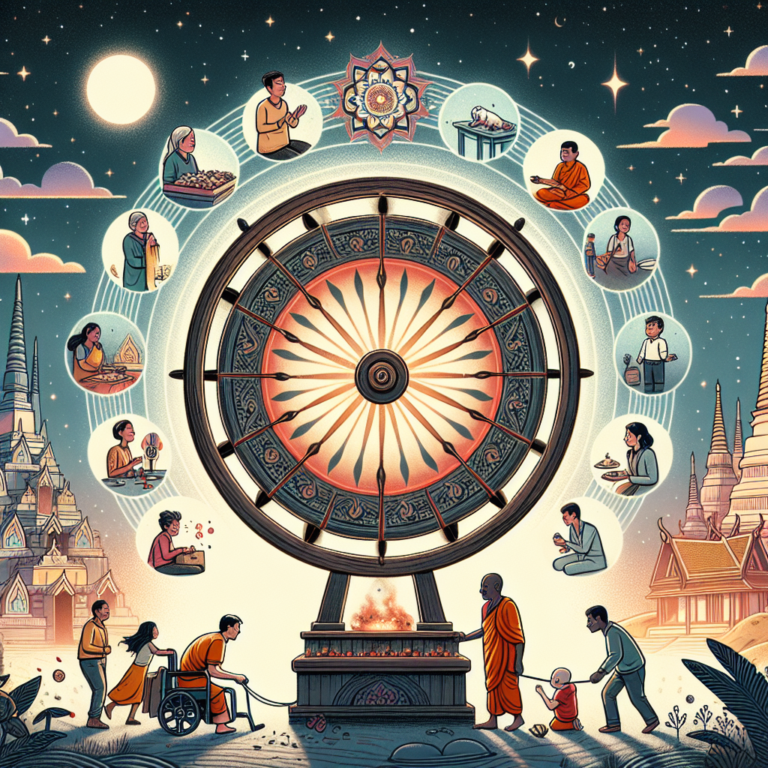Family Karma: A Cultural Deep Dive into the Lives of South Asian Americans
Introduction
Since its debut on Bravo in March 2020, "Family Karma" has been more than just another reality television series; it has emerged as a groundbreaking cultural commentary on the lives of South Asian Americans. Set against the vibrant tapestry of Miami, this series showcases the unique experiences, challenges, and triumphs of first-generation Indian American families. Through its compelling narratives, "Family Karma" provides an intimate glimpse into the complexities of cultural identity, familial expectations, and the ever-evolving definitions of community and belonging.
Cultural Context
At the heart of "Family Karma" is the exploration of the South Asian American identity, particularly among the Indian diaspora. The show features a group of friends who are either born in the United States or moved there at a young age, navigating their heritage while integrating into a predominantly Western society. This phenomenon of blending cultures often leads to a rich, yet at times contradictory, experience—balancing traditional values with contemporary lifestyles.
The title itself reflects a concept ingrained in South Asian philosophy—the idea of karma, or the notion that one’s actions, both good and bad, will have lasting consequences. This philosophical backdrop shapes the characters’ interactions and relationships, highlighting the importance of familial bonds, cultural legacies, and personal growth.
Key Themes
Family Dynamics
"Family Karma" intricately weaves the dynamics of family life, showcasing the generational contrasts between immigrant parents and their American-born children. The series delves into the struggles of balancing respect for cultural traditions with the desire for personal freedom. Viewers witness discussions around arranged marriages, career choices, and the pressure to uphold familial honor, all of which create a relatable window into South Asian family life.
Cultural Identity
The show paints a portrait of the multifaceted identity South Asian Americans often grapple with. Characters frequently confront questions such as: How Indian do I need to be to feel connected to my culture? Is there a place for both my heritage and my American upbringing in my life? "Family Karma" sensitively navigates these conversations, portraying moments of both connection and conflict as characters attempt to find their own identities amid cultural expectations.
Friendship and Community
Beyond showcasing individual families, "Family Karma" emphasizes the importance of community. The friendships depicted on the show reflect the shared experiences of South Asians in America and their collective efforts to remain connected to their roots. The characters often engage in cultural practices, such as celebrating Diwali or attending family gatherings, which provide a sense of belonging and solidarity. These moments of communal celebration serve as a reminder of the bonds that tie them together, transcending individual struggles.
Romantic Relationships
Romance serves as a significant theme throughout the series, further highlighting cultural nuances. Characters grapple with love and relationships both within and outside their cultural confines. The show presents the varying expectations placed on romantic partners, showcasing conflicts that arise when traditional values clash with the modern dating landscape. This portrayal sheds light on the different paths South Asian Americans navigate in their pursuit of love, offering viewers insight into the negotiation of cultural norms in romantic pursuits.
- Mental Health
"Family Karma" also bravely addresses the often-taboo topic of mental health within the South Asian community. Characters openly discuss their mental health struggles, therapy experiences, and the stigma that can accompany mental health issues. Through candid conversations, the show fosters awareness and encourages dialogue around this important subject, helping to mitigate the silence that often surrounds it in many immigrant communities.
Cultural Representation in Media
"Family Karma" is a significant milestone for representation in media, marking one of the few occasions where the South Asian American experience is at the forefront. Historically underrepresented in mainstream television, this show provides a platform for diverse narratives within the South Asian community. By inclusion of varied characters—each with distinct stories, backgrounds, and personalities—it challenges monolithic portrayals of South Asians often seen in Hollywood.
The series also plays a vital role in normalizing South Asian cultural practices and traditions for a broader audience, helping to reduce stereotypes and promote understanding. This type of representation is crucial, as it allows viewers to witness authentic experiences, fostering empathy and connection across cultural divides.
Conclusion
"Family Karma" is more than just entertainment; it is a vivid exploration of the South Asian American experience, capturing the intricate balance between cultural heritage and modernity. By delving into themes of family, identity, community, romance, and mental health, the series invites viewers to reflect on their understanding of cultural identity and what it means to belong.
As the show continues to evolve, it stands as a testament to the power of storytelling and representation in media, shedding light on the diverse narratives that define the South Asian American landscape. Whether you’re South Asian or not, "Family Karma" encourages all viewers to embrace their unique identities while fostering a deeper understanding of the rich cultural mosaic that exists within the United States.
FAQs
What is "Family Karma"?
"Family Karma" is a reality television series on Bravo that follows the lives of a group of South Asian American friends living in Miami, showcasing their families, cultural practices, and personal struggles.
What themes does "Family Karma" explore?
The show explores themes such as family dynamics, cultural identity, friendship and community, romantic relationships, and mental health within the South Asian American experience.
Why is "Family Karma" significant in media representation?
"Family Karma" is significant because it provides a platform for authentic South Asian narratives, offering a more nuanced and diverse portrayal of the South Asian American experience compared to traditional media representations.
How does "Family Karma" address mental health?
The show addresses mental health by showcasing the characters’ personal struggles, openly discussing therapy experiences, and challenging the stigma associated with mental health issues within the South Asian community.
- Is "Family Karma" suitable for all audiences?
While "Family Karma" is rated for general audiences, it contains themes that may resonate more with adult viewers. Parents may wish to view the series first to determine its appropriateness for younger audiences.
It seems like your message got cut off. Could you please provide more details or clarify what you would like assistance with? Whether it’s a specific topic, question, or creative writing prompt, I’m here to help!, #Family #Karma #Cultural #Deep #Dive #Lives #South #Asian #Americans, #Family #Karma #Cultural #Deep #Dive #Lives #South #Asian #Americans, 1734744010, family-karma-a-cultural-deep-dive-into-the-lives-of-south-asian-americans





